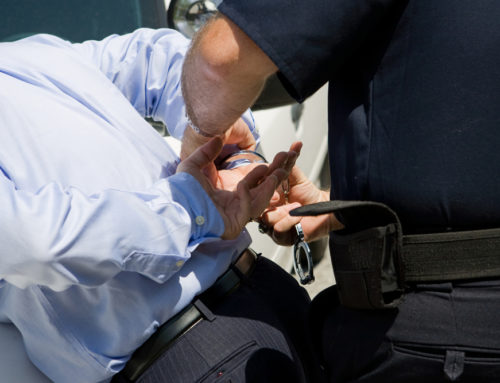Drug Arrest and Conviction Thrown Out Because of an Unconstitutional Search and Seizure
In State v. Moore, the South Carolina Court of Appeals again addressed the limits of a traffic stop. If you have been pulled over for a traffic violation or otherwise stopped by police and searched, your rights may have been violated. Contact a criminal attorney at Pisarik Law Firm to discuss your criminal defense.
Case:
State v. Moore, Opinion Number 5160 (S.C. Ct. App. 2013)
Issue:
Whether an Officer had reasonable suspicion to further detain and search a criminal suspect’s vehicle after the purpose of the original stop was completed.
Facts:
Officers with the Spartanburg County Sheriff’s Office were observing traffic along the I-85 corridor in Spartanburg County the evening of June 30, 2010. An officer stopped Moore for traveling at a rate above the posted speed limit and failing to maintain his lane. Officer Moore administered field sobriety tests to determine if Moore was impaired, and Moore passed two out of three. Officer Owens found Moore was not impaired and asked Moore if there was any alcohol in the vehicle. Moore denied having any alcohol, weapons, or drugs in the vehicle, and declined consent to a search of his vehicle. Subsequently, Officer Owens issued Moore a warning ticket.
Officer Owens decided to detain Moore until the K-9 drug detection unit could arrive, however, citing several actions he considered consistent with criminal activity, an intent to flee or nervousness: (1) Moore turned on his left turn signal when he was initially pulled over (sign that Moore might flee); (2) Moore took a long time to pull over (sign that Moore might flee); (3) Moore never turned off his turn signal (sign of nervousness); (4) Moore admitted to drinking (typically used to calm a drug trafficker’s nerves); (5) Moore started smoking a cigarette (another sign of attempting to calm nerves); (6) Moore continued to talk on his cell phone after he was pulled over by officer (common in drug trafficking cases because it indicates he is attempting to let a superior know he has been stopped by law enforcement); (7) Moore’s hands were shaking heavily and his pulse was elevated (additional signs of nervousness); (8) Moore tried to pick up his cell phone once he got out of the car (sign that Moore might flee); (9) Moore had a large amount of cash in his pocket even though he admitted to being unemployed; (10) Moore drove a rental car rented by a third-party (common in drug trafficking); (11) Moore was driving on I-85, coming from the Atlanta area (a known drug corridor and a major drug source); (12) Moore claimed to be on the way to visit his grandmother (unusual to visit grandmother at 1 a.m.); (13) Moore assumed the felony stretch position even though the officers did not ask him to do so; and (14) Moore remained extremely nervous even after he was advised he would only receive a warning citation.
Upon a search of Moore’s vehicle, officers found a bottle of alcohol under the front passenger seat of the vehicle, contraband consistent with crack cocaine in two containers in a bag in the trunk of the vehicle, a semiautomatic weapon, and a bundle of currency. Moore was arrested and ultimately convicted of trafficking cocaine base, first offense, and possession of a weapon during commission of a violent crime.
Holding:
The South Carolina Court of Appeals held that the factors cited by the officer did not provide him with a reasonable suspicion of a serious crime. As a result, the continued detention after issuance of the warning citation was illegal, and the drugs discovered during the search of the vehicle must be suppressed.
The Court expressed concern regarding the State’s inclination toward using whatever facts are present, no matter how innocent, as indicia of suspicious activity. The Court recognized that factors consistent with innocent travel can, when taken together, give rise to reasonable suspicion, but did not believe the factors cited in this case eliminated a substantial portion of innocent travelers.
A Criminal Attorney at Pisarik Law Firm Can Help With Your Criminal Defense
Contact a criminal attorney at Pisarik Law Firm to help you determine if you have been the subject of an illegal search and seizure. Pisarik Law Firm is located in Rock Hill, SC, and represents people charged with drug crimes and other crimes in Rock Hill, York, Fort Mill, Lancaster, Chester, Indian Land, Columbia, and other cities throughout South Carolina. Just because you have been charged with a crime does not mean that you are guilty. Contact a criminal attorney today for a free consultation. 803-415-2733






